The Macula: Your Central Vision
Macular Degeneration Symptoms
AMD Causes
Swelling
Nutrients
Reviews
Happily the health of the macula is responsive to diet, lifestyle and nutrition and the debilitating effects of a damaged macula can frequently be slowed, stopped, or even reversed.
Vitamins
& Supplements
Not sure which to get?For help call us at 845.475.4158
Complete Product List
On a tight budget?
We recommend
Advanced Eye & Vision Support Formula (whole food) 60 vcaps
Discount Packages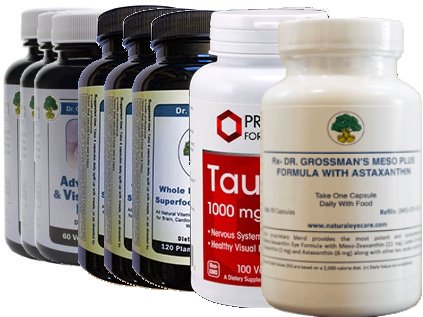 AMD Package 1 (3-month supply) AMD Package 1 (3-month supply)Essential nutrients for retinal health. Save 10% off retail. 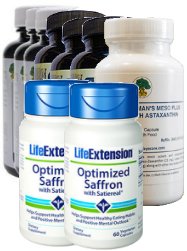 AMD Package 1G (3-month supply) AMD Package 1G (3-month supply)Lutein, zeaxanthin, astaxanthin saffron plus other essential nutrients for retinal health. 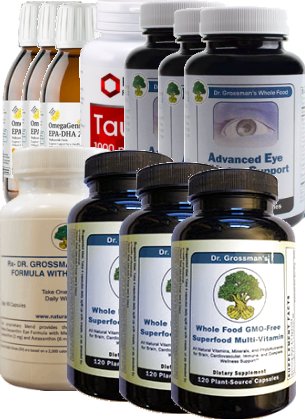 AMD Package 2G (3-month supply) AMD Package 2G (3-month supply)Essential retinal nutrients include lutein, zeaxanthin, mesozeaxanthin, omega-3 fatty acids along with saffron & astaxanthin. 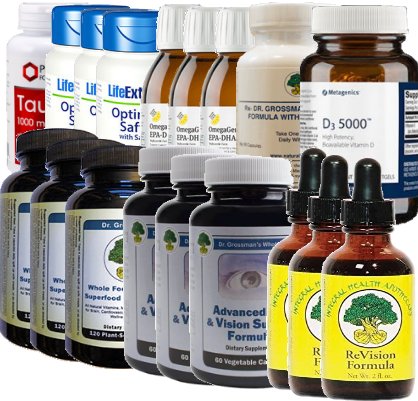 AMD Package 3G (3-month supply) AMD Package 3G (3-month supply) Essential retinal nutrients: lutein, zeaxanthin, mesozeaxanthin, astaxanthin, omega-3 fatty acids along with saffron extract & taurine. |
Essential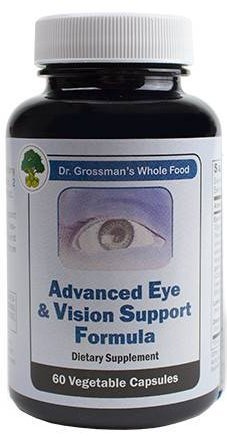 Advanced Eye & Vision Support Formula (whole food) 60 vcaps Advanced Eye & Vision Support Formula (whole food) 60 vcapsWhole food, wild crafted herbal vegetarian formula with vision antioxidants, chemical- and preservative-free. |
Essential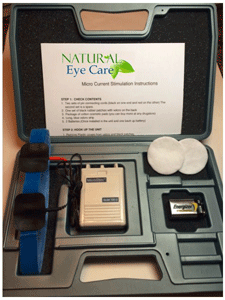 Microcurrent Stimulation 100ile Purchase Option Microcurrent Stimulation 100ile Purchase OptionHelps improve circulation & reduce waste build-up. |
Essential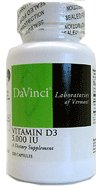 Vitamin D3 5000 IU 120 vcaps Vitamin D3 5000 IU 120 vcapsVitamin D3 5000 IU per capsule |
Essential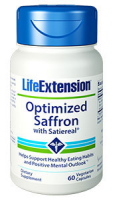 Optimized Saffron w/ Satiereal® 60 vcaps Optimized Saffron w/ Satiereal® 60 vcapsSource of carotenoids, antioxidants safranal and crocin. |
Essential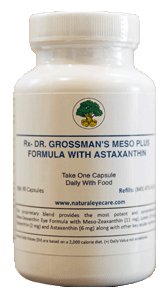 Dr. Grossman's Meso Plus Formula with Astaxanthin - 90 vcaps Dr. Grossman's Meso Plus Formula with Astaxanthin - 90 vcapsMeso-zeaxanthin, Lutein, Zeaxanthin & Astaxanthin for overall retinal support and computer eye strain. |
| Very Important Stem Xcell Pro 60 Capsules (E00688) Macula Support Homeopathic Pellets |
| Important Retinal Support (wild-crafted herbal formula) 2 oz |
How to Help Prevent Macular Damage
The recommended supplements and herbs that I started using in March are doing their job well. My eye is healing. Thanks for that!
I also enjoy listening to Dr. Grossman's podcasts. As a result, I have become much more aware of the health of my precious eyes
and how I can support health with diet, additional supplements and lifestyle. The situation in my left eye has remained stable.
- D. Beck 11/20
- Stop smoking. This is one of the most important things you can do to prevent damage to your vision. A 2005 review of research pointed out that 13 separate studies found that there was a statistically significant tie between the habit of smoking and the development of macular degeneration. The risk in smokers was two to three times higher than in non-smokers.6 A 2015 study identified damage and inflammation caused by smoking to several layers of the macula: the pigmented layer, Bruch's membrane, the choroidal stroma.7 Additional studies in 2016 verify this finding. Learn more about research on smoking and macular degeneration.
- Protect against blue light. Wear sunglasses (wear wraparound sunglasses especially if you have been diagnosed with AMD) that are UV resistant to protect your eyes against damage from blue light.
- Leafy greens. Make sure your diet includes plenty of fresh, preferably organic, dark leafy greens. These vegetables are rich in carotenoids, the colored pigments that your eye needs, especially lutein and zeaxanthin. Even if you don't like vegetables such as collards, kale and spinach, you can add them to soups, puree them in green drinks, juice them with other fruits and vegetables, or add them to other greens in salads. Many studies report that the nutrients found in these healthy vegetables lower the risk of developing macular degeneration.
- Low fat diet. The Western diet, high in fats, is associated with a higher risk of macular degeneration. Researchers have found that a high fat diet gives rise to weak gut microbiota resulting in poor digestion and long-range, low-grade inflammation in the entire body. These factors appear to be the source of high rates of AMD in men who are overweight.13
- Daily juicing. A great way to get the nutrients from leafy greens is juicing of vegetables and fruits (preferably organic). See our juicing recipe to support the health of the macula.
- AREDS. The nutrients specified in the 2001 AREDS (which investigated vitamins C and E, beta-carotene and zinc) were found to reduce the risk of advanced AMD by about 25%. The AREDS formula includes: 500mg vitamin C; 400 IU vitamin E, 15 mg beta-carotene, 80mg zinc, 2 mg copper.
- AREDS2. The nutrients tested in the 2006 (which added omega-3 fatty acids, lutein and zeaxanthin to, and reduced zinc and beta-carotene in the AREDS formula), were found to further reduce the risk of advanced AMD. As a result of AREDS2 the formula was revised to: 500mg vitamin C; 400 IU vitamin E, 10mg lutein, 2mg zeaxanthin, 350mg DHA, 650mg EPA, 25mg zinc and no beta-carotene.
- Zinc. A note for vegetarians: The AREDs studies found that zinc is necessary for a healthy macula: 11mg daily for men and 8mg daily for women. Zinc is abundant in meat and seafood. It is also abundant in nuts, grains and legumes, but not in a readily absorbable form. The body does not store zinc well, so zinc supplementation might be needed for vegetarians and vegans.14 Consult your medical provider.
- Other nutrients Other research has determined that astaxanthin10, and meso-zeaxanthin, other potent antioxidants, are important. Vitamin C has been found to enhance the absorption of lutein.
- Resveratrol has been found to inhibit the growth of new blood vessels in the advanced form of macular degeneration, choroidal neovascularization.16, 17
- Omega 3 fatty acids. Many research studies have established that omega 3 fatty acids lower the risk of macular degeneration.8 Omega 3s have the ability to regulate formation of extraneous blood vessels that distort vision.9 Eating fish is a great way to increase omega 3 in your diet.
- Omega 6 to Omega 3 Ratio. The standard western diet tends to be very high in omega 6 fatty acids, with a ratio of about 10-20:1. The Mediterranean diet has a higher proportion of omega-3; the ratio is about 4-5:1. This ratio is associated with a protective effect against the severe neovascular form of ARMD.15
- Vitamin D3. Low levels of vitamin D3 in the body are associated with increases in macular degeneration symptoms. D3 has anti-inflammation and anti-angiogenic capacities and has the greatest benefit in patients where the genetic risk is greatest.11 Because D3 has an important role in the immune system and aging process it is important in age-related conditions such as macular degeneration where the retina suffers age-related damage.12
- Drugs. Both prescription and non-prescription can damage the macula. Toxins in cigarettes are known to be harmful; some drugs that make the eyes more sensitive to light are also harmful. Be aware of drugs that damage the macula.
- General tips supporting healthy eyes
- Exercise is critical, not only for your vision health, but for overall health. In fact, exercise is the single-most important thing you can do for many health conditions. You might consider our new Yoga & Vision DVD.
- Healthy vision tips
About AREDs Formulations
Most formulas commonly marketed for macular conditions are based on the 2001 AREDS studies and include vitamins C and E, zinc and beta-carotene. The AREDs formula is extremely helpful, but there are other well researched essential nutrients that need to be included to keep your macula healthy. These include lutein, zeaxanthin, meso-zeaxanthin, bilberry, essential fatty acids and other nutrients. Some of these nutrients were additionally studied in 2006 AREDS2.
Conventional Treatment
- One diagnostic tool is the Amsler Test.
- Doctors now acknowledge that at least the AREDs formulations can be helpful as macular degeneration supplements.
- Sometimes laser surgery is the recommended treatment, but it may not completely repair a leaking blood vessel without permanently damaging nerve fibers passing through the retina. The National Eye Institute reports that macular degeneration treatment using laser technology can make vision worse, and benefits towards slowing progress of the condition not appear until at more than a year following surgery.
- Photodynamic Therapy (PVT) is a generally less damaging procedure to seal blood vessels in the eye than traditional laser treatments.
- Antiangiogenesis drugs such as Macugen can be injected into the retina for wet macular degeneration; they help prevent the body from growing new, leak-prone blood vessels in the retina. Lucentis and Avastin are considered more effective injection treatment strategies. Research suggests that the best results are using a combination of Lucentis and PVT to help stabilize wet macular degeneration.
- In the future bone marrow stem cell injections or optogenetics may be used to treat conditions like AMD.
- Drugs can have potentially serious side effects, so the benefits of going on these therapies have to be evaluated with your eye doctor and family.
- The best cure is prevention. You can use complementary medicine to address underlying causes of AMD, along with conventional medicine to alleviate acute event damage. Since less than 1% of those with ARMD are legally blind, most people are able to benefit greatly from prevention.
Footnotes
1. AREDS, Major nationwide study, by National Institutes of Health, National Eye Institute, October 2001, Archives of Ophthalmology.
2. AREDS2, Major nationwide study, by National Institutes of Health, National Eye Institute, 2006.
3. Ties between Intermediate Age-Related Macular Degeneration, Lutein and Zeaxanthin, University of WI, Departments of Opthalmology and Visual Science, et al, Archives of Opthaloogy, 2006.
4. Massachusetts Eye and Ear/Schepens Eye Research Institute, et al, Cytochrome P450-generated metabolites derived from omega-3 fatty acids attenuate neovascularization, Ryoji Yanai, et al, Proceedings of the National Academy of Sciences, June 2014.
5. See other research on macular degeneration.
6. J. Thornton, et al, Smoking and age-related macular degeneration: a review of association, Eye, September, 2005.
7. T.D. Keenan, et al, Assessment of Proteins Associated With Complement Activation and Inflammation in Maculae of Human Donors Homozygous Risk at Chromosome 1 CFH-to-F13B, Investigative Opthalmology and Visual Science, July, 2015
8. J.P. San Giovanni, et al, American Journal of Clinical Nutrition, 2009
9. Massachusetts Eye/Ear, Schepens, Harvard Medical, et al, Cytochrome P450-generated metabolites derived from omega-3 fatty acids attenuate neovascularization, Ryoji Yanai, et al, Proceedings of the National Academy of Sciences, June 2014
10. T. Otsuka, et al, Protective effects of a dietary carotenoid, astaxanthin, against light-induced retinal damage, Journal of Pharmaceutical Science, October, 2013.
11. Association between Vitamin D status and Age-Related Macular Degeneration by Genetic Risk, 2015
12. V. Lee, et al, Vitamin D rejuvenates aging eyes by reducing inflammation, clearing amyloid beta and improving visual function, Neurobiology of Aging, October, 2012.
13. E.M. Andriessen, A.M. Wilson, et al, Gut microbiota influences pathological angiogenesis in obesity-driven choroidal neovascularization, EMBO Molecular Medicine, December, 2016.
14. A. Carneiro and J.P. Andrade, Nutritional and Lifestyle Interventions for Age-Related Macular Degeneration: A Review, Oxidative Medicine and Cellular Longevity, January, 2017.
15. T.C. Mance, D. Kovacevic, et al, The role of omega6 to omega3 ratio in development and progression of age-related macular degeneration, Collegium, Antropologicum, September, 2011.
16. Resveratrol Inhibits Hypoxia-Induced Vascular Endothelial Growth Factor Expression and Pathological Neovascularization.
17. SIRT1 mediated inhibition of VEGF/VEGFR2 signaling by Resveratrol and its relevance to choroidal neovascularization
 info@naturaleyecare.com
info@naturaleyecare.com



 Home
Home



 Vision
Vision Vision
Vision



 Health
Health Health
Health Research/Services
Research/Services Pets
Pets About/Contact
About/Contact


